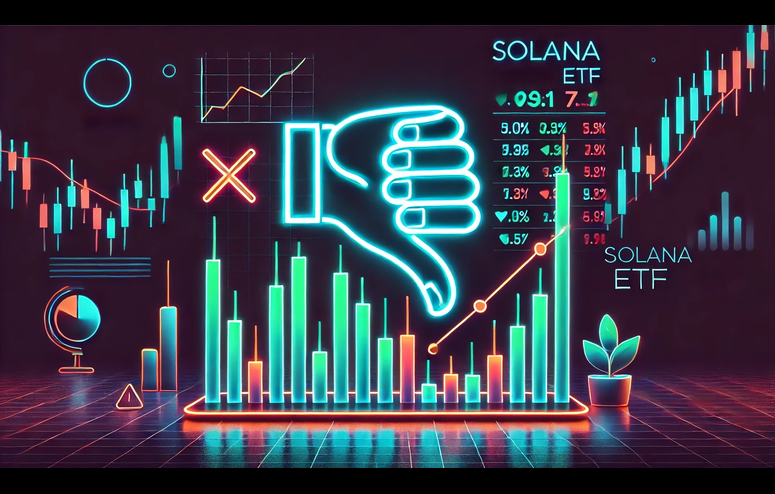Analysts Say Solana Spot ETFs Are Still a Long Shot - The Defiant

As Ethereum spot Exchange Traded Funds (ETFs) are set to go live on July 23, all eyes are now on Solana. Asset managers VanEck and 21Shares have already filed for Solana spot ETFs, hoping it will be the next major player. Will their efforts pay off with a swift approval? Some analysts are skeptical about Solana getting a spot ETF approval anytime soon. Ryan Lee, Chief Analyst at Bitget Research, told the Defiant that the Securities and Exchange Commission’s (SEC) inconsistent application of the Howey Test and its criteria for "sufficient decentralization" add uncertainty to whether Solana qualifies as a security. “This makes the path to an ETF approval rocky for Solana,” he said. To gain approval for an ETF, certain boxes must be ticked, said Kashif Raza, Chief Executive Officer (CEO) of Bitinning, a web3 education platform. These include healthy levels of liquidity, decentralization, resistance to price manipulation, and regulatory classification. Potential Securities Classification Raza said Solana's classification as a security is the primary hurdle for approval of a SOL ETF. In June 2023, the SEC filed lawsuits against crypto exchanges Binance.US and Coinbase, charging them with trading crypto asset securities, including Solana. The Solana Foundation disputed this classification, asserting that SOL is not a security. "Bitcoin and Ethereum are global commodities," Raza continued. "They aren’t tied to any single company. There are no offices or shareholders. Most altcoins have pre-mine investors, venture capital backing, board meetings, and marketing departments – essentially operating like companies, making them securities." Solana is criticized for being centralized in comparison to Ethereum. One major reason is the concentration of token ownership. Around 50% of Solana's SOL tokens are held by venture capitalists, developers, and Solana Labs, according to a 2021 Messari report. In contrast, about 83% of Ethereum tokens were distributed through public sale in 2018. According to Solana Beach data, Solana's network comprises around 1,525 nodes, fewer than Ethereum's 3,730 full node validators. The high hardware requirements for running a Solana validator node creates a barrier to entry, limiting participation to those who can afford high-end equipment. This results in fewer nodes and greater centralization. On the other hand, Bitcoin has 8,583 nodes running. Security Versus Commodity The classification of cryptocurrencies as either securities or commodities impacts the regulatory framework of the digital asset sector. Securities, such as stocks, bonds, and derivatives, represent ownership positions or creditor relationships in corporations or governmental bodies. The SEC oversees securities regulation in the U.S., applying the Howey Test to determine an investment’s security status. If a cryptocurrency is deemed a security, issuers and exchanges must comply with strict SEC regulations, including registering the asset and providing extensive disclosures to protect investors. If classified as a commodity, the cryptocurrency falls under the CFTC's purview, and lifts some of the regulatory burden. Commodities, including raw materials like gold, wheat, or oil, are regulated by the Commodity Futures Trading Commission (CFTC). They are typically fungible, meaning they can be exchanged for other goods of the same type. In July, the CFTC Chairman urged Congress to grant the agency more authority over the crypto sector, specifically the spot cryptocurrency market. Lack of Futures Market Nate Geraci, co-founder of the ETF Institute and President of the ETF Store, is also skeptical. He believes that Solana won’t see an ETF approval until it gets futures contracts. “No SOL ETF until either CME-traded sol futures exist or Congress puts legit crypto regulatory framework in place,” he tweeted in May. “Crypto ETF spigot turned off for a while after spot eth ETF approval… IMO.” Bitcoin futures were first approved in 2017, leading to trading on exchanges such as the Chicago Mercantile Exchange (CME) and the Chicago Board Options Exchange (CBOE), though CBOE ceased trading in June 2019. Bitcoin futures quickly gained traction, with CME Bitcoin futures reaching $8.69 billion in open interest (OI) by July, according to data from The Block. Ethereum futures followed a similar trajectory, receiving approval from CME in February 2021. While Ethereum futures generally experience lower trading volumes compared to Bitcoin, they still reached $1 billion in OI. Solana remains without a futures market in the U.S., and by extension, its ETFs face significant hurdles for approval. Still, Eric Balchunas, a senior ETF analyst at Bloomberg, said a SOL ETF is on the horizon . “Keep in mind after launch there are flows and then add’l ETH products I’m sure, then Solana, and then.. it’s probably never going to end,” he tweeted. “The dam has broken.” Meanwhile, institutional investors are expanding their exposure to altcoins, including Solana. According to James Butterfill, head of research at CoinShares, nearly 15% of surveyed investors had invested in Solana in April. The Election Impact The upcoming U.S. elections in November, could play a pivotal role in the future of crypto ETFs. Lee pointed out that crypto-friendly Presidential candidate Donald Trump and his V.P JD Vance have publicly supported cryptocurrencies. "If Trump wins the next election, we could potentially see a wave of new coins being approved as ETFs,” he said. Raza said Trump might even appoint a new SEC commissioner who is more favorable towards crypto ETFs. "However, if the Democrats stay in power it's unlikely we'll see an altcoin ETF anytime soon,” he noted. “Even if Biden replaces Gensler with another Democrat as the SEC chair, the regulatory stance might still not be supportive of altcoin ETFs." This sentiment was echoed by Bloomberg Intelligence’s ETF expert James Seyffart, who said on X that the Van Eck fund "only has a shot to launch sometime in 2025 if we have a new admin in the White House and SEC. Even then not guaranteed.” Prediction markets participants agree chances are low. According to crypto prediction platform Polymarket, Solana has just a 11% chance of getting its spot ETF approved in 2024.
